Key findings
The Royal Children’s Hospital is inviting parents to take part in the RCH Catch Them Being Good Challenge. All you need to do is:
- Take note of your child’s everyday efforts and achievements
- Tell them what they have done well
- Double the amount of praise you give them – the more the better!
- Try this every day for at least a week
- Share your story on The Royal Children’s Hospital’s Facebook page so other parents can learn from your experience
Australian parents are struggling with the daily stress of trying to manage their child’s behaviour, according to new findings from The Royal Children’s Hospital National Child Health Poll.
The latest RCH Poll has uncovered an undercurrent of confusion, guilt and stress among parents who are trying to get the best behaviour from their children yet unsure of where to go for help.
The poll, based on a survey of 2044 parents Australia-wide caring for 3545 children aged one year to under 18 years old, found:
- The vast majority (95%) of parents use positive tactics to promote good behaviour in their children, such as attention, praise and reward
- One in four parents (27%) report feeling stressed by their child’s behaviour every day
- A significant proportion of Australian children have been physically disciplined in the past month, according to parent report, with 4% being physically disciplined `quite a lot or most of the time’, 13% `some of the time’ and a further 24% `rarely’
- Many parents reflect critically on their own parenting strategies, with almost half of (48%) said they become impatient too quickly, while one in three (36%) said they often lost their temper and later felt guilty
- A third of parents (33%) said children should be on their best behaviour at all times, suggesting a lack of understanding about the range of normal childhood behaviours
- A third (32%) said they often feel overwhelmed by managing their child’s behaviour
- And almost half (45%) of parents are not confident that they would know where to go for help if they had difficulty managing their child’s behaviour
The 12th RCH Poll reveals that parents spend a lot of time thinking about how to manage their child’s behaviour yet many are critical of their own strategies. Parents of younger children are especially more likely to feel stressed at least once a day by their child’s behaviour.
However, almost all parents try positive techniques to encourage good behaviour at least some of the time. These include:
- Giving their child praise or attention when they behave well (95%)
- Rewarding good behaviour with an activity together (84%)
- Talking with their child about the type of behaviour they expect (93%)
- Talking with their children about their feelings when they misbehave (85%)
- Non-physical consequences such as time out or withdrawal of privileges (84%)
Many parents used positive and negative strategies when their child misbehaved. Punitive techniques used at least ‘some of the time, quite a lot or most of the time’ in the previous month included:
- Shouting or yelling at their child (61%)
- Making their child feel bad to teach them a lesson (35%)
- Threatening physical discipline (23%)
- Using physical discipline (17%) such as smacking, hitting, spanking, slapping, pinching or pulling
The poll found more than half of Australian parents (51%) think it is never OK to use physical discipline with a child. However, almost one in five parents (23%) subscribe to myths that physical discipline teaches a child to respect their parents. Another one in five (23%) also believe it teaches children self-discipline, while a quarter believe children can become unmanageable without physical discipline.
Poll Director and paediatrician Dr Anthea Rhodes, said: “Children behave in different ways depending on their age, temperament, developmental stage and the situation. It is normal for children to push boundaries and to have difficulty regulating their emotions. Understanding the reasons for a child’s behavior will help parents respond sensitively and more effectively to challenging behaviours.’’
“Children’s brains are hardwired for attention. The best type of attention for a child to receive is a positive response to desired behaviour. Praise, praise and more praise. If you see your child behaving well – praise them. They will love it and do it again to please you.’
In this video, Dr Anthea Rhodes shares a snapshot of the findings.
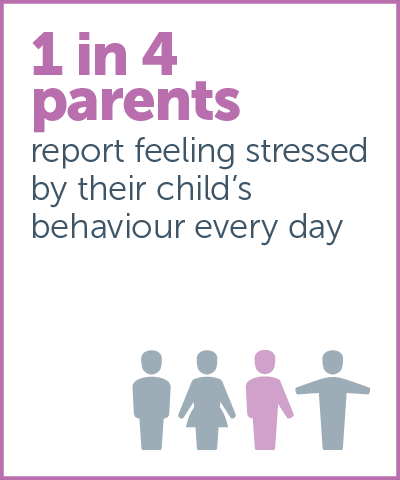
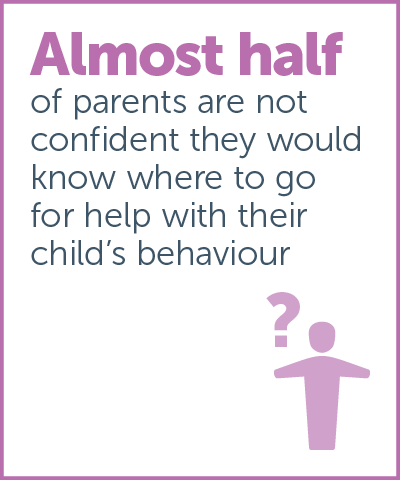
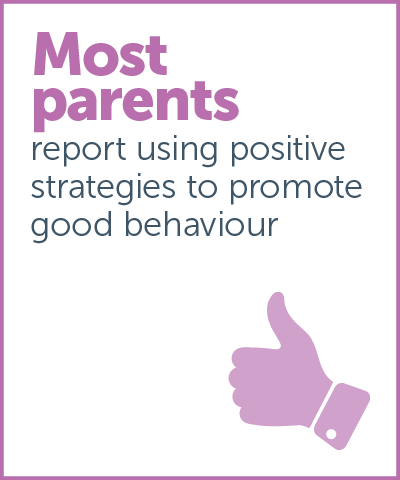
Poll report
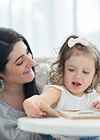
Child behaviour: How are Australian parents responding?
Download reportReferences
Download references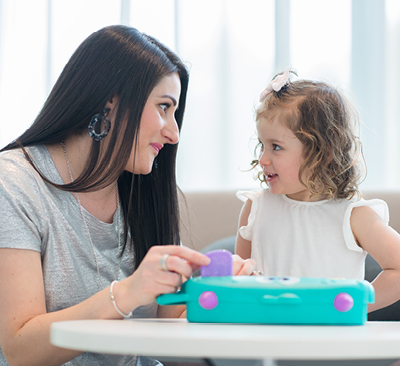
Poll questions

Child behaviour: How are Australian parents responding?
Download poll questions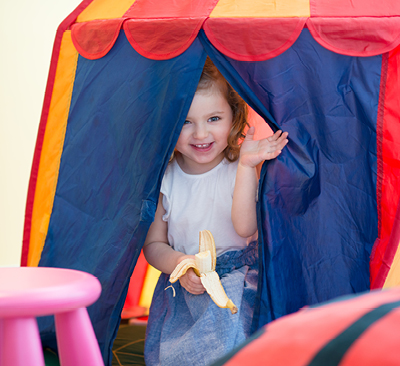
In the news
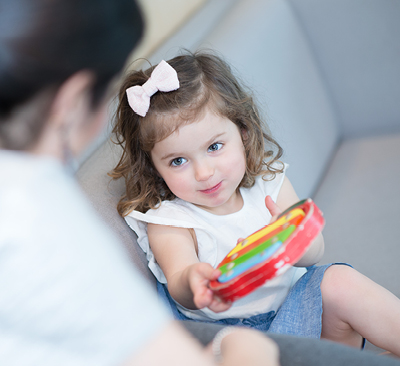
Information for parents
Tips for managing child behaviour
- Use positive reinforcement to encourage your child to behave well – try to ‘catch them being good’ and praise and encourage the desired behaviour. The more you do this the better it will work.
- Discourage the challenging behaviours – things that work well include ignoring the behaviour, offering alternatives, encouraging empathy and talking with your child about why a behaviour is not OK
- Be a positive role model – encourage and develop strong and respectful relationships with your child or teenager
- Explain what you expect – set rules and talk with your child about the consequences of breaking them
- Avoid physical discipline – this focuses on what not to do and doesn’t work well to teach children about the behaviour you would like to see. Physical punishment has been linked to harm in children
- Avoid shouting, shaming and isolation as types of punishment
- Take a break and try to calm down if you feel overwhelmed
Positive strategies to encourage good behaviour
- Regularly give your child praise and attention when they behave well
- Talk with your child about the behaviour you expect
- Role model the behaviour you want to see from your child
Tools to manage child behaviour
- Positive Parenting Program: Triple P
- Raising children network: Discouraging challenging behaviour: tips in action
- Raising children network: Self-regulation in young children
- Raising children network: Behaviour
The Royal Children’s Hospital resources
- RCH Kids Health Info – Challenging behaviour: toddlers & young children
- RCH Kids Health Info – Challenging behaviour: school aged children
- RCH Kids Health Info – Challenging behaviour: teenagers
Here’s some practical advice, from Dr Anthea Rhodes, that may help you manage child behaviour at home.
RCH Catch Them Being Good Challenge
- Take note of your child’s everyday efforts and achievements
- Tell them what they have done well
- Double the amount of praise you give them – the more the better!
- Try this every day for at least a week
- Share your story on The Royal Children’s Hospital Facebook page so other parents can learn from your experience



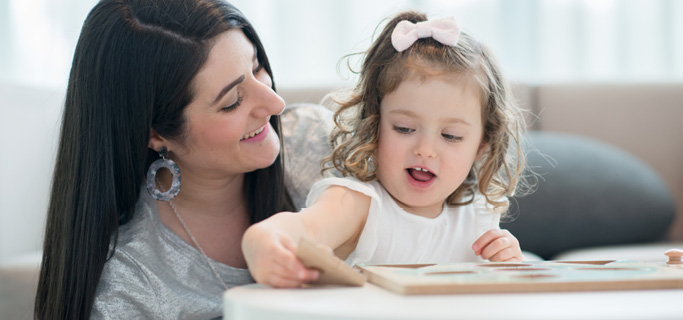
[…] and school refusal to issues with self-harm,” Valerie tells us. But despite them being common, one in four parents admits to finding challenging behaviours stressful and overwhelming. In our discussion, Valerie […]